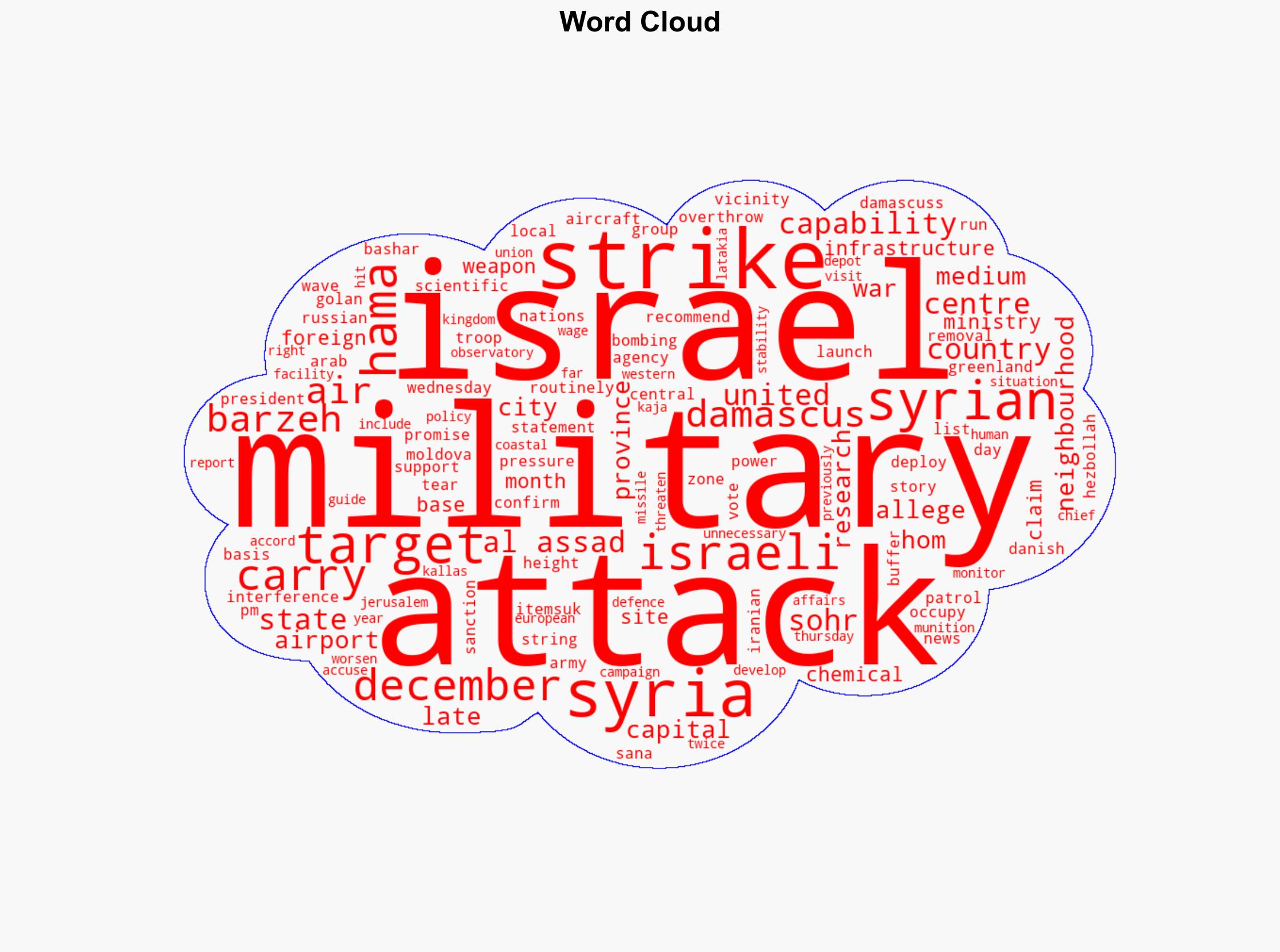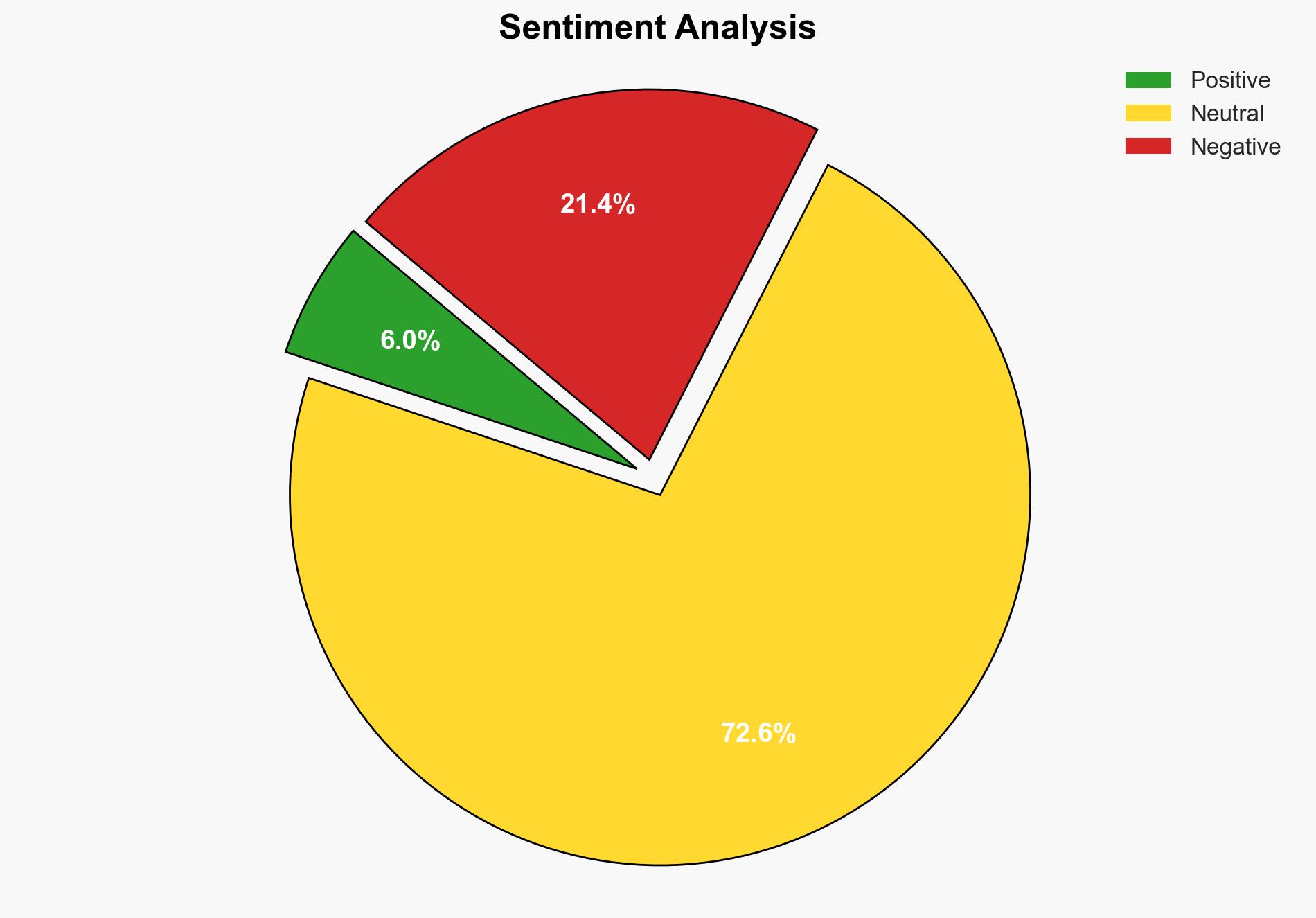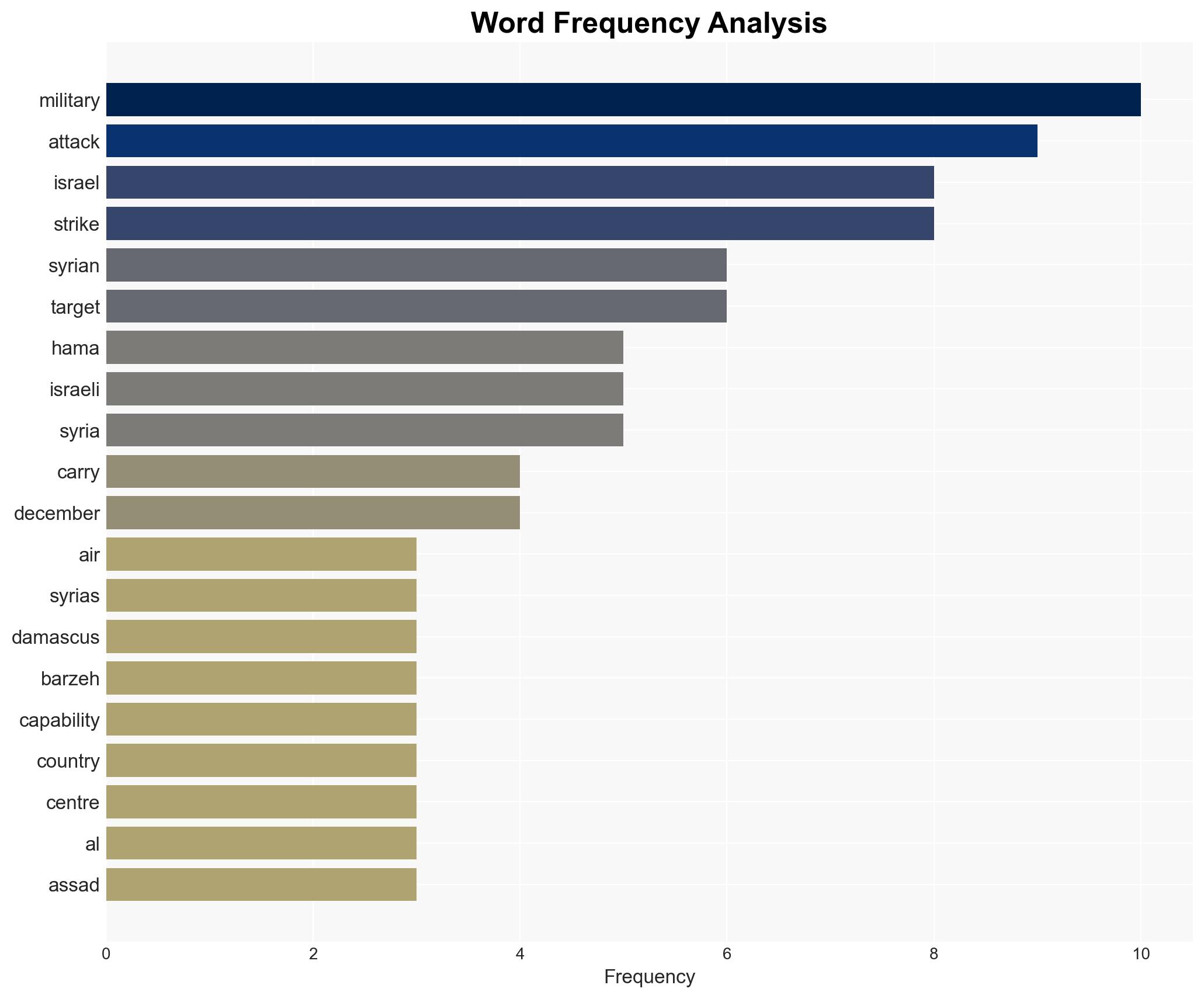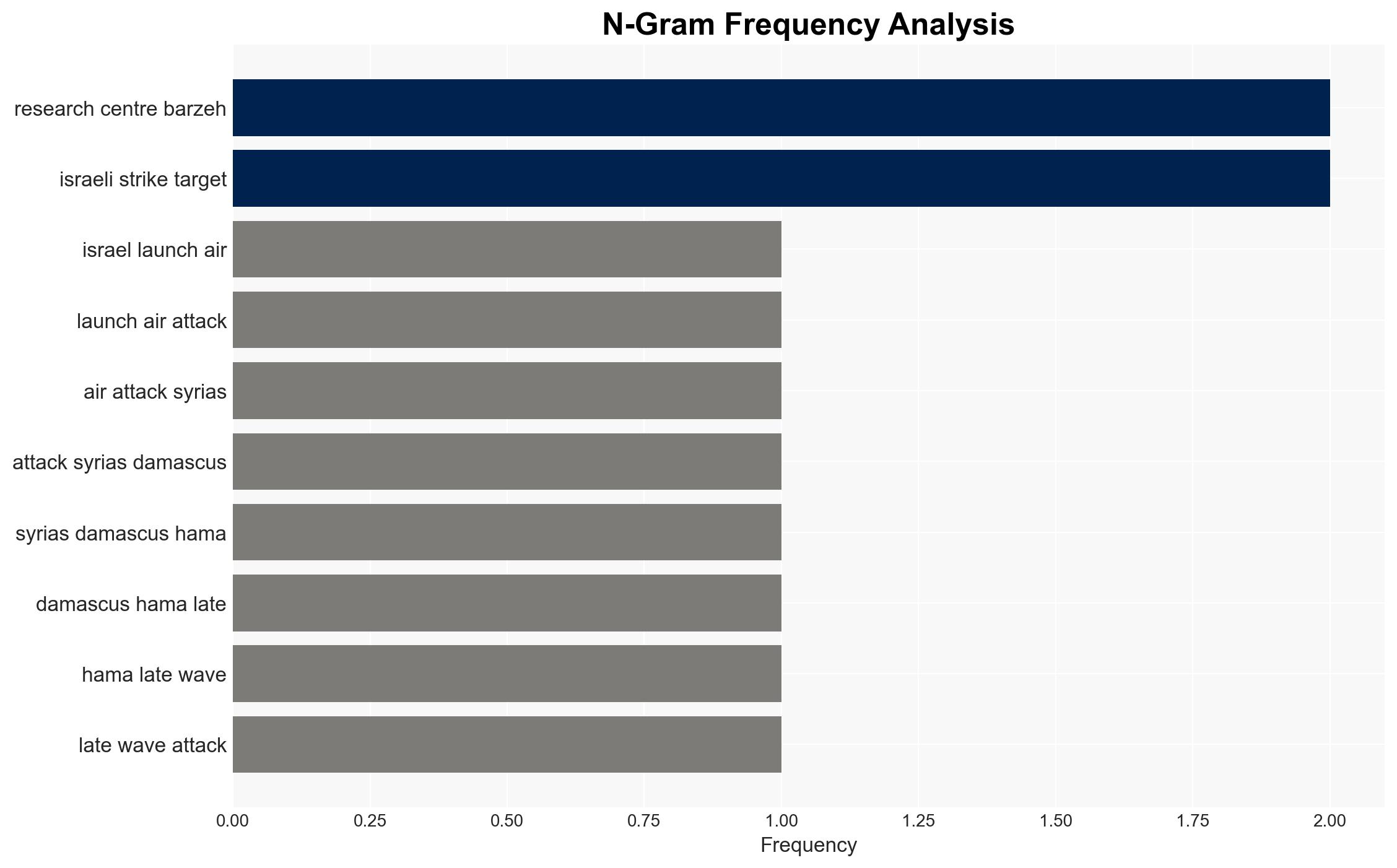Israel launches air attacks on Syrias Damascus and Hama – Al Jazeera English
Published on: 2025-04-02
Intelligence Report: Israel launches air attacks on Syrias Damascus and Hama – Al Jazeera English
1. BLUF (Bottom Line Up Front)
Israel has conducted air attacks on Syria, targeting areas in Damascus and Hama. The strikes are reported to have focused on military capabilities and infrastructure. This action is part of a series of ongoing military engagements by Israel in Syria, primarily aimed at countering perceived threats from Iranian and Hezbollah forces. The situation poses significant implications for regional stability and international relations.
2. Detailed Analysis
The following structured analytic techniques have been applied for this analysis:
General Analysis
The air attacks by Israel on Syrian territories, specifically in Damascus’s Barzeh neighborhood and the central province of Hama, indicate a continuation of Israel’s strategic military operations in the region. The targeted sites, including a scientific research center and military infrastructure, suggest a focus on degrading Syria’s military capabilities. The Syrian Observatory for Human Rights reports that these sites are linked to missile and chemical weapon development. The frequency and targets of these strikes reflect Israel’s ongoing security concerns regarding Iranian influence and Hezbollah’s presence in Syria.
3. Implications and Strategic Risks
The air attacks carry several strategic risks, including:
- Escalation of military conflict between Israel and Syria, potentially drawing in regional and international actors.
- Destabilization of the already fragile Syrian state, complicating peace efforts and humanitarian conditions.
- Potential retaliatory actions by Syrian or allied forces, increasing tensions in the Middle East.
- Impact on global diplomatic relations, particularly with countries involved in Syrian peace negotiations.
4. Recommendations and Outlook
Recommendations:
- Encourage diplomatic engagement between Israel and Syria to reduce tensions and prevent further military escalation.
- Support international monitoring of military activities in the region to ensure compliance with international law.
- Enhance intelligence-sharing among allies to better understand the strategic objectives and capabilities of involved parties.
Outlook:
Best-case scenario: Diplomatic efforts lead to a de-escalation of military activities, reducing regional tensions and fostering stability.
Worst-case scenario: Continued military engagements result in broader conflict, drawing in additional regional and global powers.
Most likely scenario: Intermittent military strikes continue, maintaining a status quo of tension without significant escalation or resolution.
5. Key Individuals and Entities
The report mentions significant individuals and organizations, including:
- Bashar al-Assad
- Syrian Observatory for Human Rights
- Kaja Kallas
These individuals and entities play critical roles in the ongoing conflict and its broader implications.





